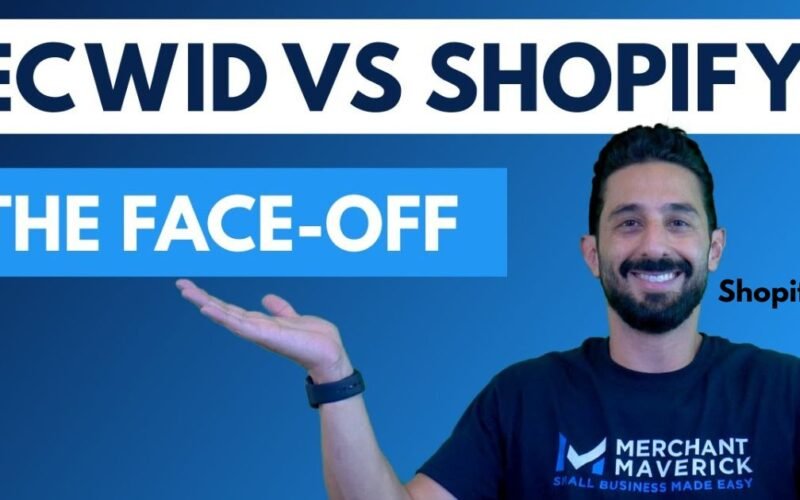Choosing the right eCommerce platform can make or break your online business. With so many options available, it can be overwhelming to decide between Ecwid and Shopify. Both platforms offer robust features, but they cater to different needs and business models.
In this article, we will uncover 7 shocking differences between Ecwid vs Shopify that you must know before making your decision. Whether you’re a small business owner, an entrepreneur, or a large retailer, understanding these key differences will help you select the platform that best suits your needs.
1. Pricing Structure: Which One is More Cost-Effective between Ecwid vs Shopify?
Shopify Pricing
- Shopify offers three main pricing plans:
- Basic Shopify: $39/month
- Shopify: $105/month
- Advanced Shopify: $399/month
- Shopify also charges transaction fees unless you use Shopify Payments.
Ecwid Pricing
- Ecwid has a free plan, which Shopify does not offer.
- Paid plans:
- Venture: $19/month
- Business: $39/month
- Unlimited: $99/month
- No transaction fees on any plan.
Key Difference: Ecwid provides a free plan and no transaction fees, making it a budget-friendly option compared to Shopify.
2. Ease of Use: Which Platform is More Beginner-Friendly?
- Shopify: Known for its intuitive drag-and-drop interface, making it easy for beginners to build an online store.
- Ecwid: Designed for users who already have a website and want to add eCommerce functionality without creating a separate store.
Key Difference: Shopify is an all-in-one solution, while Ecwid integrates into an existing website, making it ideal for businesses with an established online presence.
3. Customization and Design Flexibility
- Shopify offers over 100 professionally designed themes, both free and paid.
- Ecwid has fewer customization options but integrates seamlessly into any existing website design.
Key Difference: Shopify provides greater design flexibility, while Ecwid is best for adding eCommerce features to an existing website.
4. SEO and Marketing Tools
- Shopify: Built-in SEO features, blogging capabilities, and robust marketing tools such as abandoned cart recovery.
- Ecwid: Lacks a built-in blogging platform but integrates well with third-party marketing tools.
Key Difference: Shopify offers more advanced SEO and marketing tools, making it the better choice for scaling an online business.
5. Payment Processing and Transaction Fees
- Shopify supports multiple payment gateways but charges transaction fees unless you use Shopify Payments.
- Ecwid supports over 100 payment gateways with no additional transaction fees.
Key Difference: Ecwid is more cost-effective in terms of payment processing, especially for businesses using third-party gateways.
6. Multi-Channel Selling Capabilities
- Shopify: Allows integration with social media, marketplaces (Amazon, eBay), and POS systems.
- Ecwid: Supports selling on Facebook, Instagram, Amazon, and eBay, but offers better integration with existing websites.
Key Difference: Shopify is better for omnichannel selling, while Ecwid is ideal for businesses wanting to add eCommerce to an existing website.
7. Customer Support and Resources
- Shopify: 24/7 customer support via chat, email, and phone.
- Ecwid: 24/7 chat and email support for paid plans, but no phone support.
Key Difference: Shopify provides more extensive support options, including phone support, which Ecwid lacks.
Conclusion
Both Ecwid vs Shopify are excellent eCommerce platforms, but the best choice depends on your business model:
- Choose Shopify if you want a standalone eCommerce store with powerful customization and marketing tools.
- Choose Ecwid if you already have a website and just need to add eCommerce functionality.
Before making your final decision, consider your budget, ease of use, customization needs, and long-term growth strategy.
For more information visit Ecwid vs Shopify


[…] For more information visit iAdvize Shopify App […]